The Department of Anesthesiology utilizes the Skills Acquisition and Innovation Lab (SAIL) for simulation training. SAIL, a state-of-the-art teaching and research laboratory, provides a critical training component that enables interns, residents and attending anesthesiologists to become acquainted with current and new technologies and to maintain and broaden their skill sets.
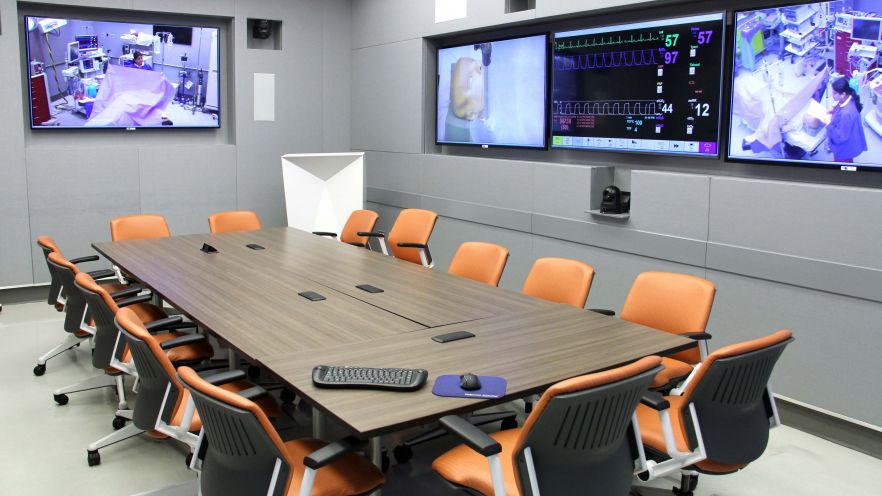
SAIL includes thirty high definition cameras, fifteen large, high definition LED flat screens, two dozen microphones, and a command center, which controls all the cameras from a central location. The conference room, equipped with a wall of high definition flat screens, enables the highest quality education and debriefing conditions to be achieved.
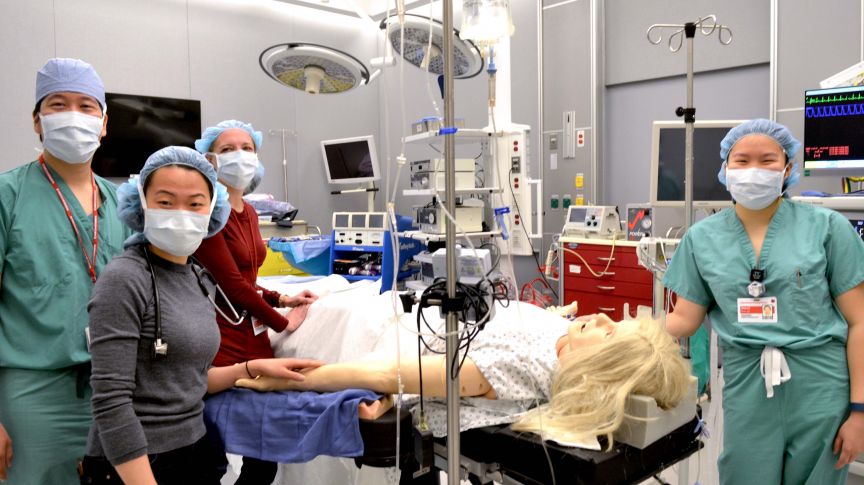
SAIL offers a large OR simulation room, which contains a full bodied mannequin that breathes, blinks, talks and responds to medications and procedures. SAIL also has a simulation patient care/ER room, and a simulation procedural skills lab.
Weekly Teaching Sessions
Interns
During their 3-month anesthesiology rotation, all interns experience the core curriculum in SAIL: two hour small group sessions where interns are able to independently practice basic scenarios in the SAIL operating room. The goal is to gain an experiential understanding of basic scenarios that a CA1 will encounter. The operating room is a replica of our clinical operating rooms that are used daily, including all necessary equipment. The sessions are taped, and then the scenario is debriefed to achieve understanding of basic important intern skills in the operating room.
CA1, 2 and 3 Years
The CA1, 2 and 3 residents participate in complex scenarios of events that require crisis resource management skills. Some are rare but critical events that require practice in an environment that is not a high stakes environment. These scenarios are extensively discussed and debriefed for learning. SAIL's video equipment enables us to replay events for the residents to examine and discuss their actions.
SAIL has multiple trainers for our residents to practice skills including intubation, fiberoptic intubation, regional blocks, spinal and epidural placement, arterial line and central line placement.
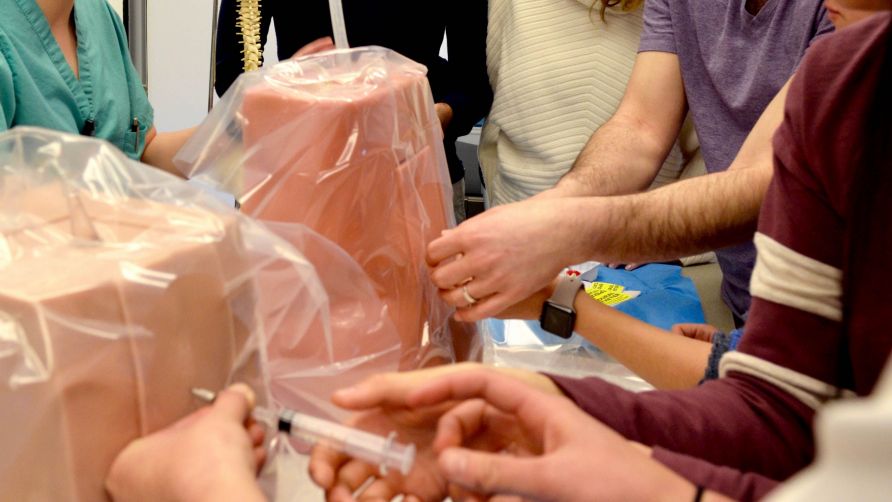
Events
Objective Structured Clinical Examination (OSCE)
The ABA Applied Examination includes an OSCE in addition to the Standardized Oral Examination. Twice a year in SAIL, residents have the opportunity to trial a mock OSCE. A four-station OSCE is given with trained standardized actors. All sessions are filmed, and formative feedback is given to the residents by attendings who have a standardized rubric for grading and by the actors.
Family Day
Hosted by the Residency Support Council, SAIL Family Day is an annual event that gives friends and family a hands-on look at the challenges that anesthesiologists face. Visitors to the lab practice intubation, epidurals and experience the operating room.
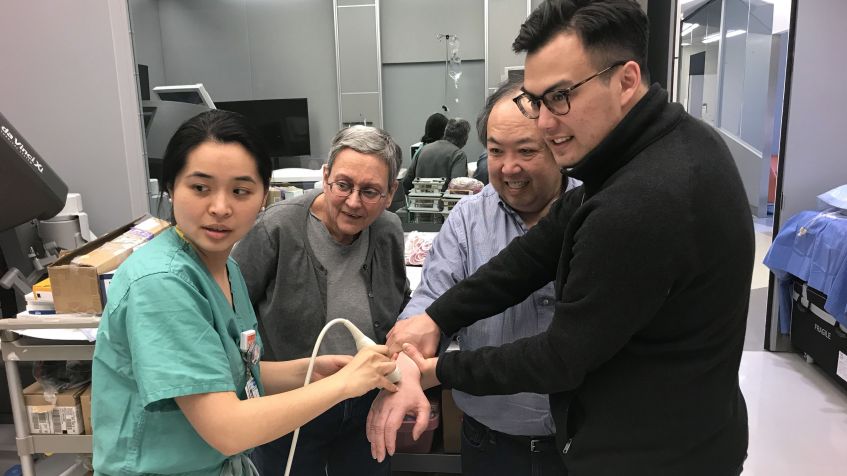
Family Day gives friends and family a window into the challenges anesthesiologists face.
Anesthesia Emergency Management Workshop
This workship is a yearly experience for our residents. CA3 residents lead a workshop for the CA1 residents to teach them the essential emergency tools needed as they become part of the overnight call team. The half-day event includes a simulated cardiac arrest in the operating room with an emphasis on crisis resource management and use of the Emergency Checklist, ACLS protocols, and advanced airway management.
For more information about our simulation education programs, contact:

John Rubin, MD
Director, Simulation Education
Assistant Director of Education (Academic Assistance)
Assistant Professor of Clinical Anesthesiology
Contact:
Lisa Cabrera
E-mail: lcabrera@med.cornell.edu
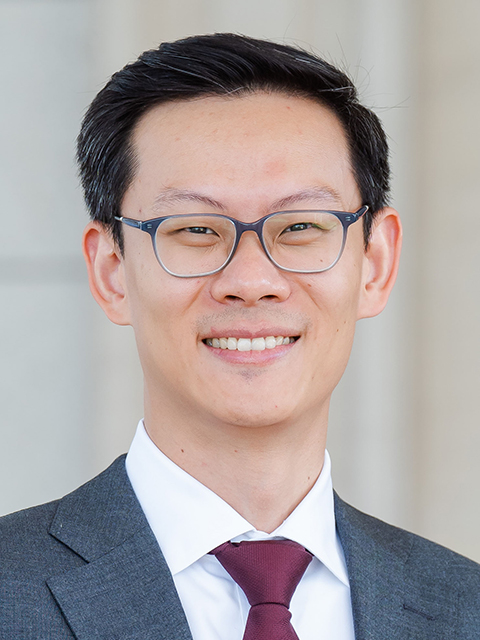
Liang Shen, MD, MPH
Co-director (Anesthesiology), Skills Acquisition & Innovation Laboratory (SAIL)
Associate Director, Anesthesiology Critical Care Medicine Fellowship
Assistant Professor of Clinical Anesthesiology
Contact:
Marlene Augustine
E-mail: maa2010@med.cornell.edu


